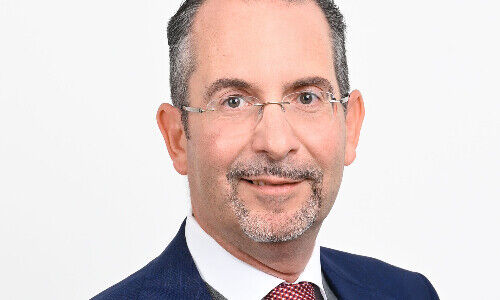Last year was nothing for the faint-hearted. A major Swiss bank collapsed. Several US institutes went under while certain property markets teetered uncertainly in and out of the headlines. But many bankers managed the situation pretty adroitly, Swiss finance professor Teodoro Cocca writes in a contribution for finews.com.
The differing fortunes of the two major Swiss banks, Credit Suisse and UBS, consumed most of the world’s attention this year. Although they had operated in practically identical circumstances, they ended up on two completely divergent paths.
In hindsight, it is archetypal of the significance of good and bad strategic decision-making as external circumstances did not determine the fate of both banks, whose head offices are meters apart in the heart of Zurich.
Importance of Decisions
Largely indistinguishable market conditions and similar businesses showed the almost cruel importance of management decisions. Clever moves helped UBS manage to position itself as the quasi-savior of Credit Suisse. It was a masterstroke on all levels – strategic, financial, and public messaging.
Many university students and MBA institutes will be using it as a case study for years to come. It is hard to see how you can better underline how consequential strategic, clear-thinking top management is.
Artificial Mini-intelligence
Last year was also one in which artificial intelligence reached the broader public as Chat GPT made it available to everyone. The hype is already unmistakable in the markets and in banking conferences. It will continue to grow. However, it is not year clear how the new technologies will be applied in a way that helps the banking industry's productivity. A measure of skepticism seems to be in order here.
The quick availability of a new technology does not automatically imply related value creation or a new unique sales proposition (USP) per se. It is easy to get those things mixed up. These new developments will first impact IT investment budgets while the strategy units at banks will wrack their heads as to how artificial intelligence can be meaningfully implemented.
As long as machines require humans to identify stop sign lights from a selection of CATPCHA images, we probably won’t be taken over by a central form of artificial intelligence.
Trends Come and Go
In the same breath, last year’s catchword, the «Metaverse» has practically disappeared while the term digitalization has become somewhat staid.
Efficiency gains from waves of digital investment have proven marginal – except in relation to payments and retail banking. As a matter of course, banks needed to keep up and meet the demands of digital clients. But it has not been a game changer in hindsight.
Bar isolated exceptions, having a pure digital banking model has at best led to niche positions for the very few.
Crypto-Crash Validates Banking Skepticism
The crypto world, which in recent years had talked itself up as a replacement for the entire financial system, had to face up to reality in 2023.
Many extravagant projects disappeared into thin air along with an underlying industry ideology that trust could be substituted by digital solutions. That was something that proved to be a clear feeding ground for abuse in hindsight and the skepticism expressed by many bankers about the crypto-world was validated.
For bank executives, the current environment shows how hard it is to navigate such a dynamic, tech-heavy environment, make the right decisions about where to make investments, and say «no» to superficial trends and visions.
All Not Exposed to Benko
The situation involving real estate tycoon René Benko shows the need for a certain measure of humility. Even in a semi-institutionalized (or despite) ultra-high net worth client segment there is always the danger that committees are too easily swayed by acknowledged names and the prospect of significant net new money and juice sources of interest income.
There are often conflicts between the front line, management, compliance, and risk when it comes to approving business with very large clients. Good judgment based on experience and healthy skepticism is decisive, not a purely formal review of documentation. Not everyone was blinded by Benko and many bankers successfully managed to resist the temptation of doing business with the entrepreneur.
Year of Good Decisions
Behind the headlines and the technology hype, 2023 showed how important people were in banking. Strategic, thought and quietly planned management decisions that sometimes when against the grain are often more significant than others. In fact, 2023 can be seen as a year of good decisions, both from bank executives and boards. I congratulate everyone who feels they did a good job while also telling them – at the same time - not to become overly exuberant.
Teodoro D. Cocca has been Professor of Asset and Wealth Management at Johannes Kepler University Linz since 2006. Before that, he spent several years at Citibank in investment- and private banking, conducted research at the Stern School of Business in New York, and taught at the Swiss Banking Institute in Zurich. In addition, as a Swiss citizen with Italian roots, he is an associate professor of private banking at the Swiss Finance Institute (SFI) in Zurich while acting as a consultant for financial companies and public authorities in Switzerland and abroad.



































